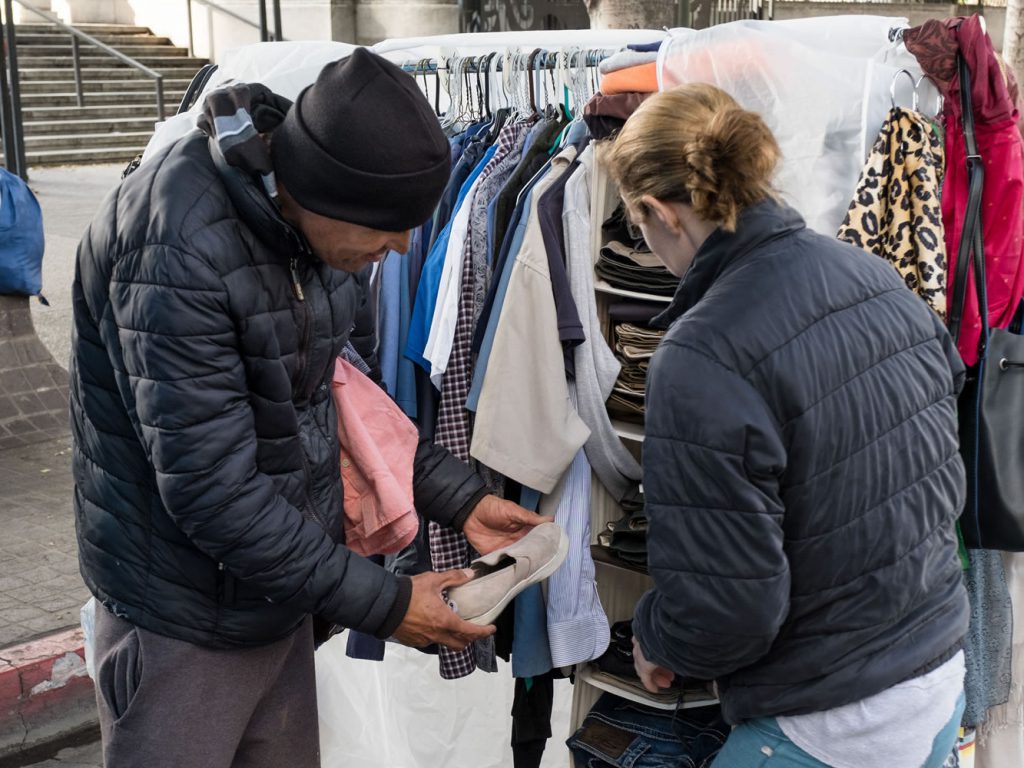If you can, try conceiving a reality wherein you are forced to go for days without taking a shower, brushing your teeth, or changing your clothes. The experience seems entirely alien to those of us lucky enough to have enough available resources to provide for ourselves in these areas, but, for many homeless individuals, this is what their day-to-day existence looks like. Though homelessness is accompanied by many deprivations — from food, to shelter, to safety — one of its greatest indignities comes with the absence of hygiene services.
The simple fact is that the majority of homeless people are faced with significant barriers to proper hygiene, much of which stems from stifled access to outlets such as clothing, laundry rooms, hand-washing stations, and showers. Many of these facilities are located in private businesses or municipal establishments that refuse service to the homeless. This dearth negatively impacts our society’s most vulnerable group in two equally punishing ways. First are the negative health impacts, with numerous studies linking homelessness to an increased risk of infectious disease. From ectoparasites like fleas and lice to diarrheal diseases such as typhoid and cholera, the lack of access to sanitation infrastructure is directly making homeless people sick. But these conditions also strip those who live on the street of something equally precious to physical health: their basic sense of dignity.
Indeed, experts have recognized that the denial of hygienic needs can make those already on the margins of society feel all the more ostracized. After all, when a person is physically dirty and unable to bathe, they inherently carry that around as an all-too-real stigma, which often manifests as outright disdain on the part of those around them. And, beyond outer appearances, there’s simply an unspoken measure of our self-worth that comes from feeling clean. Consider, for example, the stimulating effect of a shower first thing in the morning, which to many people, is a vital ingredient of mentally preparing for the day. Additionally, one must take into account the fact that, for those attempting to forge a path out of homelessness, their poor hygiene would also make for a significant stumbling block. Put in blunt terms, how can someone be expected to land a job interview if they’re unbathed?
So, in short, the lack of hygiene services available to the homeless is putting them in harm’s way physically, robbing them of their humanity on an emotional level, and potentially making it impossible for them to better their situation. Yet the question remains: Why? Why is a society ripe with such vast wealth at its highest levels unable to provide its most desperate citizens in this essential way? The 550,000 people go without access to methods of cleanliness, and the more that number grows, the less amenities will be available. And what can be done to cut through the red tape and provide for those in need? If the rest of the homelessness crisis is any indication, precious little on a broad governmental scale. That said, glimmers of hope are visible on a local level throughout the nation — from non-profits like Project Ropa, which takes to the streets each week to provide clean clothing and hygiene products to people experiencing homelessness in Los Angeles in tandem with other mobile hygiene service providers including Lava Mae, which travels through Oakland with a van, offering mobile shower units.
Still, if wide-spread change is going to come, we as a society must stop looking at hygiene services as some sort of privilege that ought only to be available to those who can afford it. Instead, we must start viewing it as what it is: a universal human right. Hopefully, this culture will come to understand that before it’s too late for those already hanging on by a thread in the immediate sense.
Written by: Dash Finley

